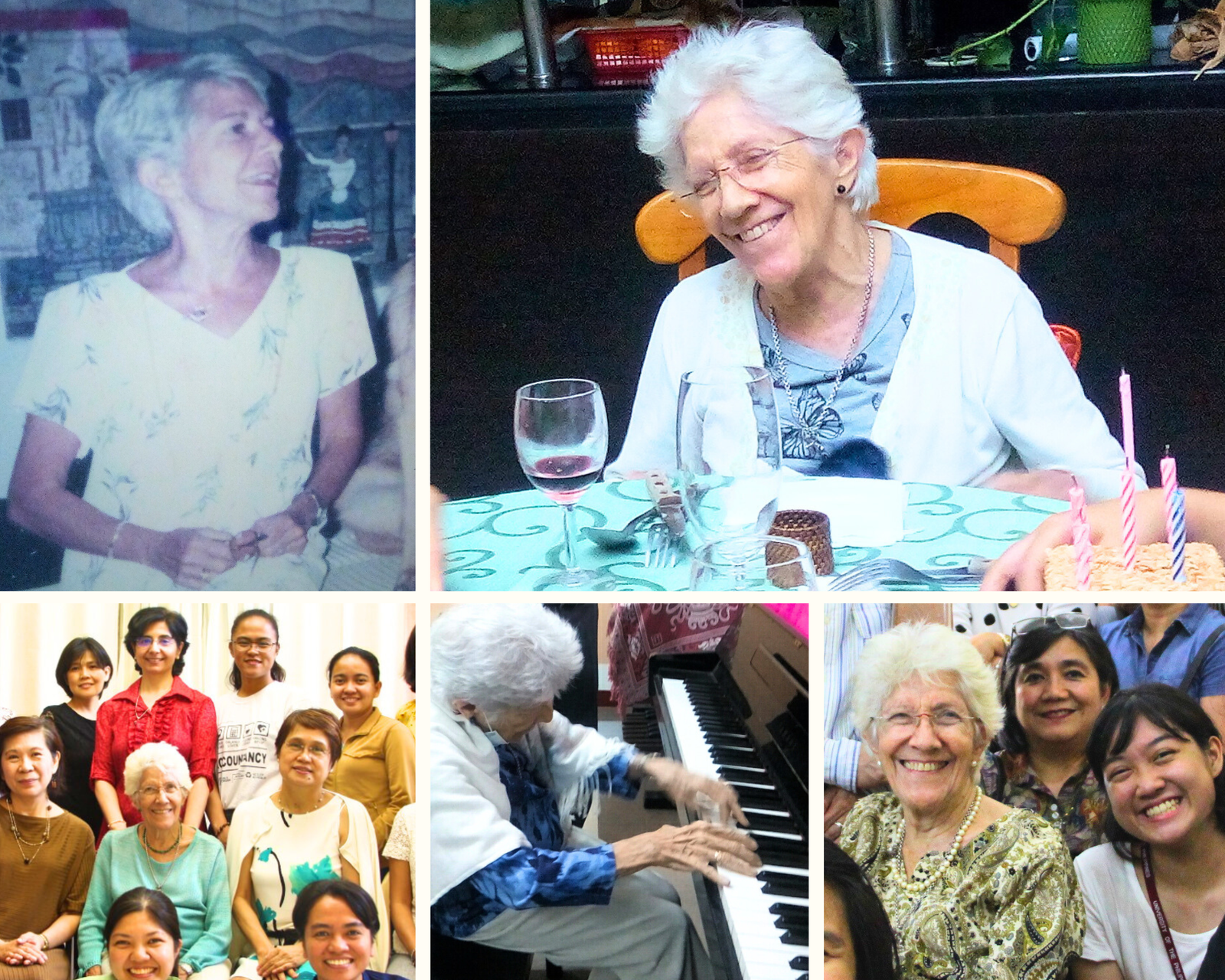
Gospel according to Saint Mark 9,2-10:
Jesus took with him Peter and James and John, and led them up a high mountain. There his appearance was changed before their eyes. Even his clothes shone, becoming as white as no bleach of this world could make them. Elijah and Moses appeared to them; the two were talking with Jesus.
Then Peter spoke and said to Jesus, «Master, it is good that we are here; let us make three tents, one for you, one for Moses and one for Elijah». For he did not know what to say; they were overcome with awe. But a cloud formed, covering them in a shadow, and from the cloud came this word, «This is my Son, the Beloved; listen to him». And suddenly, as they looked around, they no longer saw anyone except Jesus with them.
As they came down the mountain, He ordered them to tell no one what they had seen, until the Son of Man had risen from the dead. So they kept this to themselves, although they discussed with one another what ‘to rise from the dead’ could mean.
Inattention and drowsiness
Luis CASASUS President of the Idente Missionaries
Rome, February 25, 2024 | Second Sunday of Lent
Gen 22:c1-2.9-13.15-18; Rom 8,31b-34; Mk 9,2-10
The Transfiguration of Christ A unique experience? Undoubtedly; but let us not let this spectacular moment make us think that nothing like it happens in our lives.
It is not the most striking thing in this story, but the three disciples were filled with sleep (Lk 9:32) when Christ invites them to pray on the mountain. Surely, many of us identify with the three apostles, chosen by Jesus to accompany him in those moments of intimacy with the Father. It is not simply a matter of tiredness and lack of sleep. In cases like this, sleep has a meaning that is not only physiological: our attention is directed to other matters. It may seem surprising and contradictory, that after making the effort to climb a mountain, the meeting place with the gods for many cultures… the disciples take refuge within themselves. That is the meaning of their sleep.
We already know that paying attention to someone or something requires putting aside other things. Only when I am convinced that something or someone is a priority, indispensable in my life, then I do not let my attention sleep. The three disciples perhaps did not consider this ascent to the mountain very important, because they were still under the impression that Christ had announced to them his own Passion and Death. They did not fully realize that the scene was similar to what happened to Moses (Ex 24: 1), who went up Mount Sinai with three very special people, Aaron, Nadab and Abihu, to listen to Yahweh.
You and I are in a similar situation, because the many tasks, external and internal difficulties and personal desires continually corrode the attention to what is really important.
There is a big difference between the attention we pay to “things” (objects, ideas, plans) – however pleasant or painful they may be – and the attention we can pay to people. A woman, truly and thoroughly feminine, may love a colored scarf that has been given to her and it really suits her. She will look at its colors and the way she wears it. But she will not look at it in the same way as she looks at her son, for whom she will have a thousand eyes, paying attention to his body, his emotions, his words, his environment…
Allow me to tell a true anecdote, which ends with advice similar to that which God the Father gives today in the Gospel text.
A group of pilgrims went to Jerusalem to visit the historical sites. Three pilgrims in the group were so absorbed in the gift stores, buying souvenirs and taking pictures, that they completely ignored the group leader’s call for them to return to the bus.
Soon after, they realized they were alone and panicked. But that’s when their problems began. They tried to get back to the hotel, but none of them could remember the exact name. So they took a cab and asked him to drive around Jerusalem looking for the hotel. An hour later, the cab driver gave up and asked to be paid. That’s when they realized they didn’t have enough money to pay for the cab. So the cab driver took them to the police station, where they were asked to identify themselves. It was then that the pilgrims realized that they had left their passports at the hotel.
A few hours later, the guide located the missing pilgrims, who greeted him with tears of relief. He handed the passports to the police, paid the huge cab bill and drove them back to the hotel. As they were leaving, the policeman warned the pilgrims: From now on, stay close to your friend and listen to him.
We began by saying that in our lives there are many moments similar to the Transfiguration of Christ. This not only means that our own transfiguration takes place, but that Christ has a new way of presenting himself in my life and, like the three sleepy disciples, it is possible that my fragile attention does not take advantage of this visit, this always different presence, because the moments of my life are always different. And here is true what the psychologist William James once said: When the fruit is ripe, a mere touch will bring it down. Providence carefully exploits the moments when my present and my past experience come together to make me change.
To identify with Christ is not only to try to do what He did, but to feel His pain and taste His best dreams. We can say that it is a spiritual empathy, which has the opportunity to take place when Jesus invites us to climb the mountain, to look around us in a different, new way, just as he asked Abraham to climb the mountain… to sacrifice his son. Without thinking of extraordinary occasions, this invitation comes to us, for example:
* When I realize that I could have been more careful, more attentive to someone and it is already too late. But Christ wants to tell me something with this feeling, while I only get to “get sad” or, even worse, to justify myself.
* When He opens my eyes to the suffering of a person, while I am focused on his lack of sensitivity, on his selfishness, or on the time he is making me waste.
* When it gives me the opportunity to make a gesture of kindness. Not an admirable and grandiose deed, but something that is meaningful, that sends a message of closeness to my neighbor. A word, an effort to listen to him, before I rush to speak. One author said that the greatest gift I can give -always- is the purity of my attention.
* When He asks me for something totally unexpected, which does not fit the image I have of Him. We have mentioned the obedient attitude of Abraham, who was willing to sacrifice his son, which had been something abominable, since only the enemy tribes, such as the Moabites, made these sacrifices (2 Kings 2: 26). Anyway, today there are many cases of people who have practiced and promoted abortion, until their eyes have been opened to the reality of this crime.
The list of examples could be very long, but it is more important that each one of us write it down according to our own experience.
One thing that the situations we have just mentioned have in common is that, in many ways, God opens our eyes, as He did for the three sleepy disciples. And, through His gaze, we cannot only forgive our neighbor, which is always necessary, but be aware of God’s presence in their lives…at all times.
—ooOoo—
The opening words of the First Reading should not be interpreted literally: God does not speak with voices that reach our eardrums, but through nature and especially through human beings, He communicates in a way that is not audible, but profound and clear.
Among the ascetics of the desert, a story was told which well illuminates this truth, that the beginning of prayer is to give true attention to God and to mankind
One of the Egyptian fathers, seeking a sign of divine approval for his long years of monastic devotion, was told that his holiness was nothing compared to that of a simple and humble vendor from a nearby village. Going to study this man closely, the monk found him busy with his vegetables amidst the noise and hurry of the city streets, attentive to the needs of all who came to him. Even in the evening, when the people were rowdy and singing loudly in the streets, the man remained at his task, helping the stragglers in their needs.
Finally, the monk, exasperated, exclaimed: How can you be able to pray with this noise? The salesman looked around, feeling compassion for the people who made up his ordinary life, and replied very simply. I tell myself that all these are on their way to the Kingdom. They concentrate with all their attention on what they are doing, they sing songs with all the joy they can muster. Look how they are preparing for the Kingdom of God without even knowing it. What less can I do than silently praise the God they unwittingly celebrate by singing?
That night, the old monk slowly returned to his cell, knowing that he had received – from a simple greengrocer, no less – an important lesson on the art of attentiveness in the desert. Prayer can only be real when we give God and man the gift of our attention.
—ooOoo—
Let us take good note of what happened on the top of the mountain: a cloud covered the disciples and they ceased to see what fascinated them, what impelled them to follow Jesus. But in that lack of vision, in that shadow, they received the most important message, for it came from the Father: Listen to my Son. These are not mere poetic words, but a call, a demand, a call to continue listening to the voice of Two in the midst of the absurd situations of life, of the least expected setbacks, such as God’s apparent intention to sacrifice Isaac… or the decision to send his Only Begotten Son to atone for our sins.
In the Epistle to the Hebrews (11: 13) we are reminded that Abraham died without seeing the divine promise come true, as happened to other men of faith, but they were able to see and sense from afar what God had promised them, knowing that they were strangers and people passing through the earth.
Our consolation, when we contemplate the smallest light that comes to us from heaven, is what the Second Reading affirms: If God is with us, who can be our enemy?
This Lent, let us renew our intention to listen attentively to the Gospel and the intimate suggestions of the Father through the Spirit, so that we may descend into the valley with a renewed desire to walk with Christ.
_______________________________
In the Sacred Hearts of Jesus, Mary and Joseph,
Luis CASASUS
President












